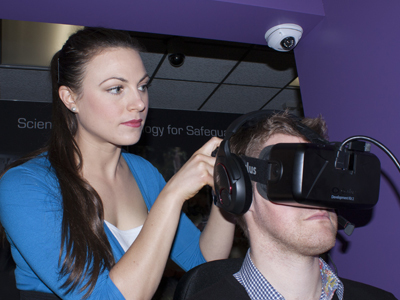Defence considers Oculus Rift for training exercises

The Australian Government Department of Defence has teamed up with Oculus, developer of the Oculus Rift VR headset, to explore applications for VR in military training and education.
Up to 60 defence civilian and military personnel are taking part in a study at the Defence Science and Technology Group’s Human Performance and Simulation Laboratory in Edinburgh, SA.
The facility has been established to support studies exploring how military personnel work and respond under different operational conditions.
It uses simulation technologies based on video games to increase the realism of simulated military scenarios. The Oculus Rift head-mounted display, an eagerly anticipated gaming gadget, could be an effective addition to the facility’s tools.
The study is being undertaken by Sarah Hibbard as part of a graduate industry placement at DST Group and will form the thesis component of her Master of Psychology degree from the University of Adelaide.
“The study will test each participant individually over a 1.5-hour period, commencing with a written survey to collect data on demographics, digital literacy and immersive tendencies,” Hibbard said.
“Using the Oculus Rift virtual reality head-mounted display or a desktop computer, each participant will then undertake an initial training session and complete two missions as a driver within the laboratory’s vehicle simulator.”
Each participant will be measured for their level of presence experience in the simulator, with the goal of gleaming a greater understanding of the way display types can influence an individual’s immersion and performance in a virtual environment.
A DST Group spokesperson told ZDNet that the improved performance and reduced cost of VR technologies suggests that there will be strong interest in using them for training purposes, and that the group is also looking to better understand the negatives of VR such as motion sickness.
Encrypted apps, AI, and cloud surveillance in policing
How Australia and New Zealand will be using technology to fight crime in 2026.
AI policy needs to protect future Australians
The genie is out of the bottle with AI and it's clear what corporate leaders are using their...
Agentic AI could be Australia's productivity superpower if we seize it
Government agencies have an opportunity to lead by example and embrace AI technology to solve...



